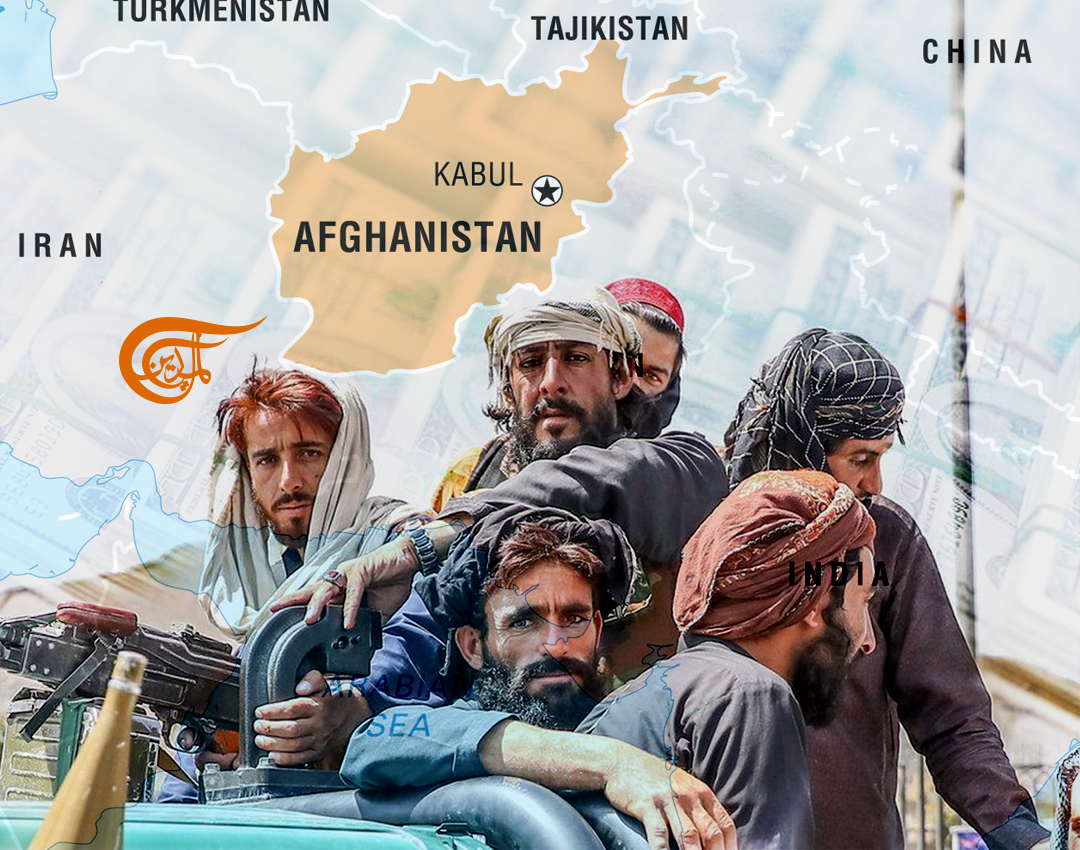NATO Withdrawal from Afghanistan Creates Space for the Birth of a New Asian Economic System
Kabul’s new Taliban rulers have every reason to pursue peaceful and productive relations with their neighbors. If they do, the economic trajectory of the Asian continent could shift dramatically.
The near-complete takeover by the Taliban again makes Afghanistan one of those rare pockets of the world closed to the expansion of the Western capitalist system, not unlike Yemen, parts of eastern rural India, the deep center of Africa, and to a lesser extent, the Islamic Republic of Iran. The way the Taliban choose to go about the construction of a new Afghan economy could have far-reaching implications for the Asian interior.
In a sign of what is likely to come for Western relations with Afghanistan, the United States froze the assets of the former government’s account held by the Bank of the Federal Reserve which amounted to around US$9 billion. The World Bank and IMF have dutifully followed suit and cut off the transfer of what funds had been going to the Central Asian country.
Given that its western neighbor Iran still has between US$100 to $120 billion of its sovereign assets frozen by US sanctions around the world, a fair assumption is that those $9 billion belonging to the former government are permanently lost to Afghanistan.
One could reasonably further assume that Western governments and associated financial institutions will be unmoved by the consequences of these actions, even if they amount to widespread famine, mass displacement, and disease. The situation of some five million Yemenis currently ‘one step from starvation’ would seem to confirm such a prediction.
Afghanistan’s new Taliban rulers signaled their awareness of such a reality by this week resuming energy imports from Iran, an action which should theoretically incur the weight of secondary US sanctions.
Afghanistan’s historically productive land and fantastically abundant mineral deposits of between US$1-3 trillion, place it in a position to prosper even if it is entirely shut out of the modern, globalized capitalist economy. This would be true even without its near unrivaled location astride the very center of Eurasia.
Overlapping trade routes
There is great difficulty in determining whether Afghanistan has been blessed or cursed by its geographic position, indeed to a great extent both are true. The Taliban now finds itself at the crossroad of at least two ambitious trans-continental economic trade corridors, neither of which currently have the backing or approval of the trans-Atlantic core.
The most well-known and far-reaching is of course China’s ‘Belt and Road Initiative,’ a program of at least US$1 trillion worth of infrastructure projects meant to connect Asia, Europe, and Africa. Being situated on Beijing’s western doorstep virtually guarantees the Afghans’ position as a key intersection of Afro-Eurasian transit and infrastructure. The Taliban leadership has already visited Beijing and undertaken not to allow any neighboring country to be attacked from their territory. Chinese diplomatic recognition is likely not far off given Beijing’s enduring paranoia over its Western Xinjiang province, assuming the Taliban leaders hold to their word.
Kabul’s new rulers, should they wish to keep their options open, have at least one alternative available to them. The ‘International North-South Transport Corridor’ is an envisioned route from India to Europe via Russia and Iran. The key node of this network is the Iranian Port of Chabahar, already well under construction, which has previously escaped US sanctions due to its logistical importance to the Afghan reconstruction. With the US having been expelled from the country it remains to be seen if Chabahar will soon be added to the ever-expanding US economic blacklist. What is certain however is that it will not be abandoned even if participating countries run the risk of expulsion from the US-dominated global financial system. The Western departure will also not have changed landlocked Afghanistan’s crucial need for access to an oceanic port, which the Iranians will continue to provide for.
Perhaps the greatest economic prize sought by the NATO occupation was that lay beneath the ground, in what is probably the world’s largest vein of minable lithium and potentially trillions of dollars-worth of strategic ‘rare-earth elements’ which are essential in modern manufacturing. With Washington only likely to weaponize further its dominance of the international economy, these resources, now seemingly out of the West’s reach, will be of crucial interest to China as well as Iran and Russia on whom the use of economic war is only likely to intensify.
North American and European leaders might like to believe that withholding recognition of a Taliban-ruled Afghanistan grants them some degree of leverage, but the fact is that as long as Kabul is recognized by and at peace with her near abroad, she might be empowered to borrow a recent Belarussian turn of phrase and invite their former adversaries to “choke” on their attempts at its economic and diplomatic isolation.
None of these realities guarantee that the Taliban will undertake some sweeping, progressive program of land reform or see that their mineral wealth is exploited in a socially and ecologically responsible manner. However, the economic future of Afghanistan is now theirs to make and the future economy they build could either perpetuate its recent history of corruption, poverty, and exploitation or open a new and flourishing chapter in the economic history of Asia.

 Samuel Geddes
Samuel Geddes
 5 Min Read
5 Min Read












